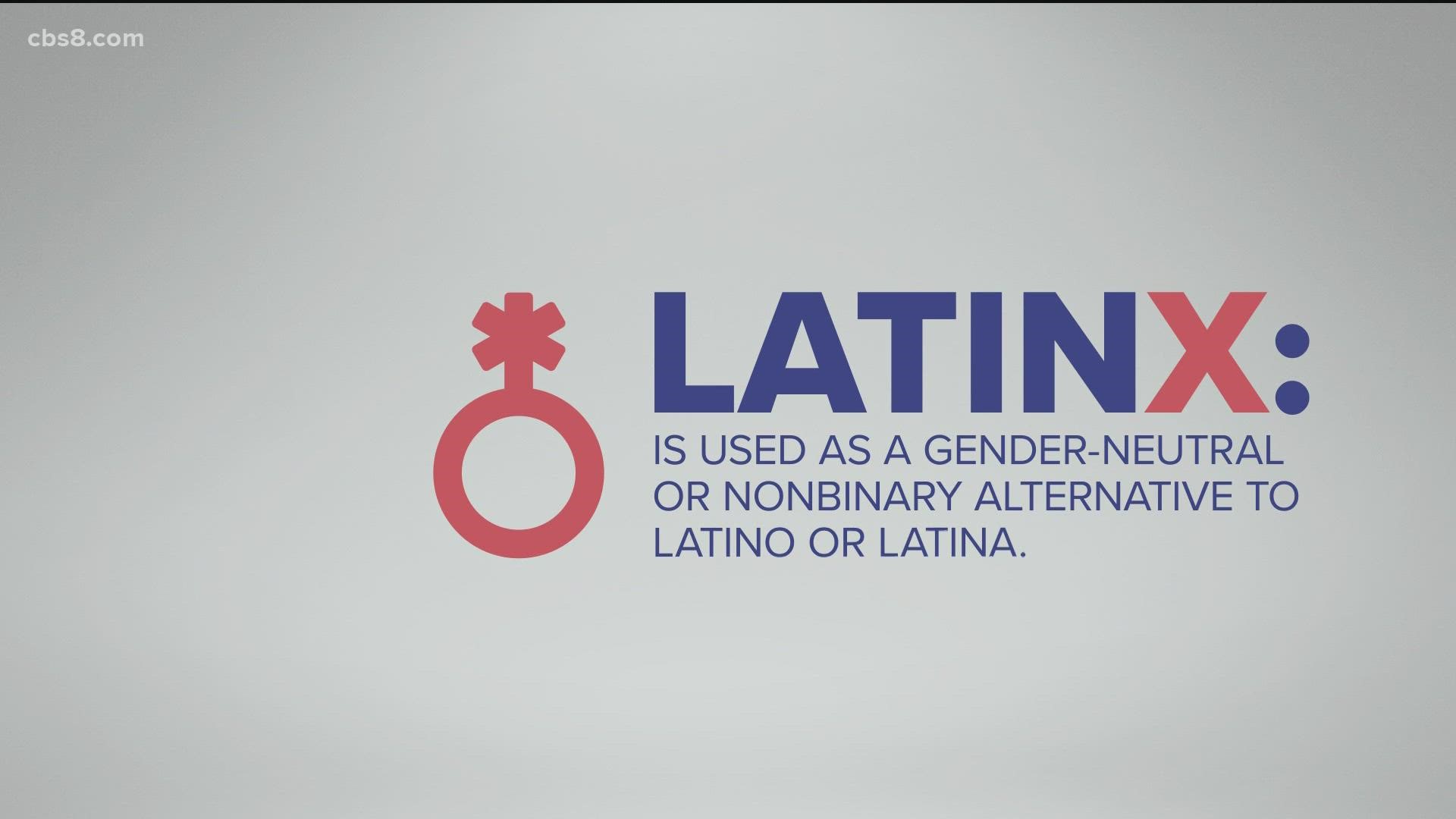SAN DIEGO COUNTY, Calif. — Americans often use Latino, Latinx, Chicano, Hispanic interchangeably but within that group, there are several cultures in how people personally identify, and some are finding Latinx offensive.
“This is what we are going out and focusing our outreach on the Latinx, which call us 'Latinos,'” said Danielle Salinas during a San Diego County Board of Supervisors meeting on July 13, 2021, about vaccine outreach.
Others are not ready to connect with the word Latinx.
“I personally identify as Latina,” said Jessica Robledo-Hauenstein.
Some also don’t like the word Latinx because it’s hard to pronounce in Spanish so it’s referred to as Latine (lah-tee-neh).
“It is still something that I'm learning and adapting. For myself, it's not something I have yet identified with but I am open to using it for someone who is more comfortable with Latinx,” said Robledo-Hauenstein.
When we look at the root of identities, Latino is someone of Latin American origin or descent. Latino is male and Latina is female and Latinx is gender-neutral or alternative to the gender-based language.
Those who identify as Hispanic are from Mexico, Central America, South America and Caribbean origin or descent.
“Some people from Mexico will self-identify as Spanish,” said Michelle F. Ramos Pellicia, Ph.D., Associate Professor of Spanish Cal State San Marcos, Modern Language Studies, CSUSM and Executive Director, Linguistic Association of the Southwest.
Often you hear of older generations self-identify as Mexican which someone from Mexico.
Also, Chicano or Chicana is an American or someone of Mexican origin or descent living in America. Chicanx is the gender-neutral term.
“When we are talking about identity we are talking about social constructions,” said Ramos Pellicia.
The linguistics professor said self-identities are fluid.
“We notice how fashion changes through the decades and what was really hype 10 years ago is out of style, same goes with identities,” said Ramos Pellicia.
Meaning, over time we self-review and express it in a different way.
“I used to identify as Chicana and then I understood it was much more of a political undertone,” said Robledo-Hauenstein.
What we can take from this is that self-identities may change and there’s a deeply rooted pride in our heritage.
“When someone says don't call me Hispanic, I hope that we are listening to what the person is saying and instead of imposing a label we can ask how would you like to be identified or what is your self-identity,” said Ramos Pellicia.
During the Chicano Movement of the 1960s, the term Chicano was widely used by Mexican Americans to express a political stance for pride, culture, and identity.
News 8 Extended Interview: Human rights activist Enrique Morones speaks about Latinx, other terms

